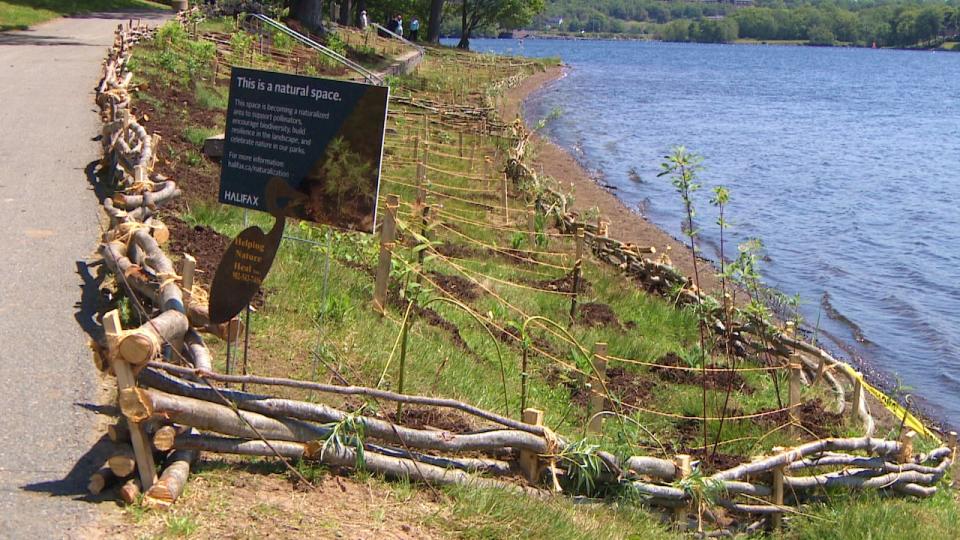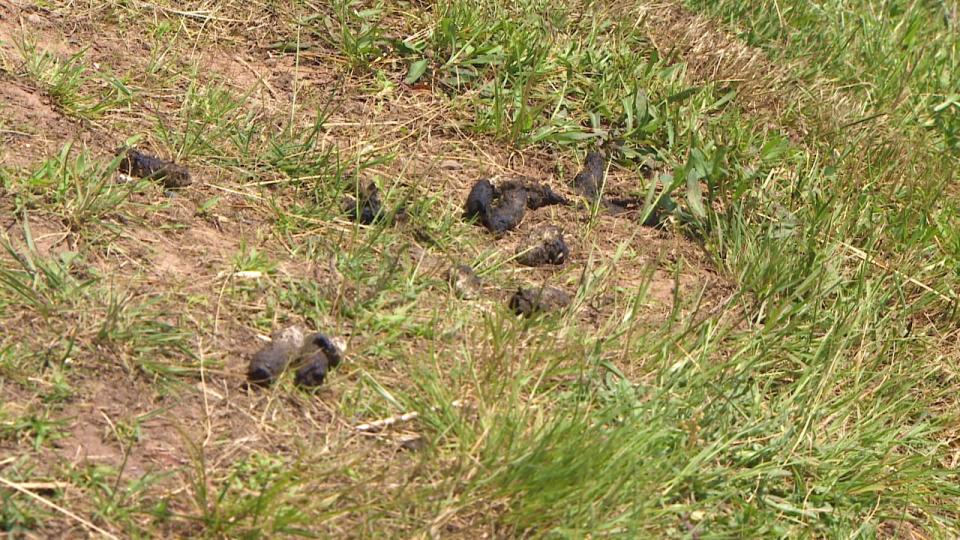Why Halifax is eyeing goose poop at its 19 supervised beaches
When lifeguards arrive for work at the Halifax Regional Municipality's 19 supervised beaches, there's a common sight they encounter.
"There can be quite a lot of bird waste on the beach," said Elizabeth Montgomery, a water resources specialist with the city's environment and climate change team.
This waste can enter the water, contaminating it with E. coli bacteria, and contribute to closures.
Montgomery said there are multiple reasons why E. coli can get in the water, but the city is trying different measures at its supervised beaches to keep waterfowl — of which geese and ducks are the biggest offenders — from doing their business there.
E. coli symptoms
Montgomery said some of the symptoms people can experience if they ingest water contaminated with E. coli are itchiness, irritated eyes, nausea, stomach pain, headache, fatigue and diarrhea.
She said if the city closes beaches, it will push people to use other places where water quality is not monitored or there are no lifeguards, so the city wants to prevent this from happening.
With stricter water quality guidelines in place and climate change creating conditions that are more conducive to E. coli contamination, going after waterfowl is one way of trying to keep the beaches open, said Montgomery.
"We're just looking to push them away from the beach area so that when they do their waste, it's not washing up to where people are spending all their time," she said.
Some of the ways the city is doing this is by installing flashing lights at the beaches to deter the birds, as well as posting flashy pieces of plastic. Past efforts have included installing noise-making devices, but they weren't very effective, said Montgomery.
A measure the city is trying out is building a living shoreline at Lake Banook's Birch Cove Park. This strip of land was made up of what Montgomery described as "eroding grass," making it a setting that attracted ducks.

The living shoreline consists of a fence made from trees that protect the perimeter of the living shoreline. Native species such as red osier dogwood and willow were planted to encourage biodiversity. This helps create a filter to reduce the likelihood of contamination from poop entering the water.
Montgomery said climate change can lead to higher levels of E. coli in the water. She said warmer temperatures make it easier for the bacteria to reproduce, while extreme rainfall events are another reason.
"We're getting more of these rain events that are likely to just sweep everything off the land into the water and so it's kind of a perfect storm."

She said that after last summer's major flooding, there were many beach closures due to E. coli.
Montgomery said other reasons why E. coli may get into the water include leaks from septic systems, or people's sewer pipes getting connected to stormwater pipes when subdivisions are being built, which happened at First Lake in Lower Sackville, N.S.
Independent of what the city is doing to target waterfowl at its beaches, there's something the public can do.
"Just people being there and using the beach is enough to deter the birds because, you know, they like the space, but they like it when it's quiet," said Montgomery.
MORE TOP STORIES

